“All war crimes committed in Ukraine against mass media workers must be documented as thoroughly as possible to ensure their thorough investigation and inevitable justice for all criminals,” emphasizes Maria Ordzhonikidze, the director of the London-based Justice for Journalists Foundation. The fund, which supports journalistic investigations against media representatives and helps media workers minimize professional risks, is a partner of the National Union of Journalists of Ukraine (NUJU).
NUJU President Sergiy Tomilenko is convinced that the Russian military hardly hides the fact that they consider Ukrainian journalists the targets of their shelling and attacks.
“Ukrainian journalists, their cars marked with the inscription PRESS are purposefully fired upon, in the occupied territories, media representatives are kidnapped, tortured, deprived of the opportunity to conduct journalistic activities, and their property is destroyed. But the consequences of aggression for Ukrainian media are not limited to this. In addition to the horrors of war, there is also unprecedented economic pressure due to which almost a third of Ukrainian mass media representatives were forced to cease working. The media that manage to continue their activity are under constant threat of closure due to lack of financial income,” says Sergiy Tomilenko.
The results of monitoring attacks on journalists, bloggers, and media workers in Ukraine for 2022 are published in an English-language report prepared by the NUJU at the request of the Justice for Journalists Foundation. The presentation of the report took place during a British-Ukrainian webinar dedicated to the anniversary of the full-scale Russian invasion.
According to verified data from the NUJU and the Foundation’s experts, at least 46 media workers were killed due to the full-scale Russian invasion of Ukraine in 2022. As of now, this sad number has increased to 52. Of them, 12 media workers were killed while performing their professional duties. They are: Ihor Hudenko, Yevhen Sakun, Brent Anthony Renaud, Pierre Zakrzewski, Oleksandra Kuvshynova, Oksana Baulina, Maksym Levin, Mantas Kvedaravicius, Yevhen Bal, Roman Nezhyborets, Zoreslav Zamoiskyi, and Frédéric Leclerc-Imhoff.
It was established that at least 36 media workers were injured during attacks by the Russian military.
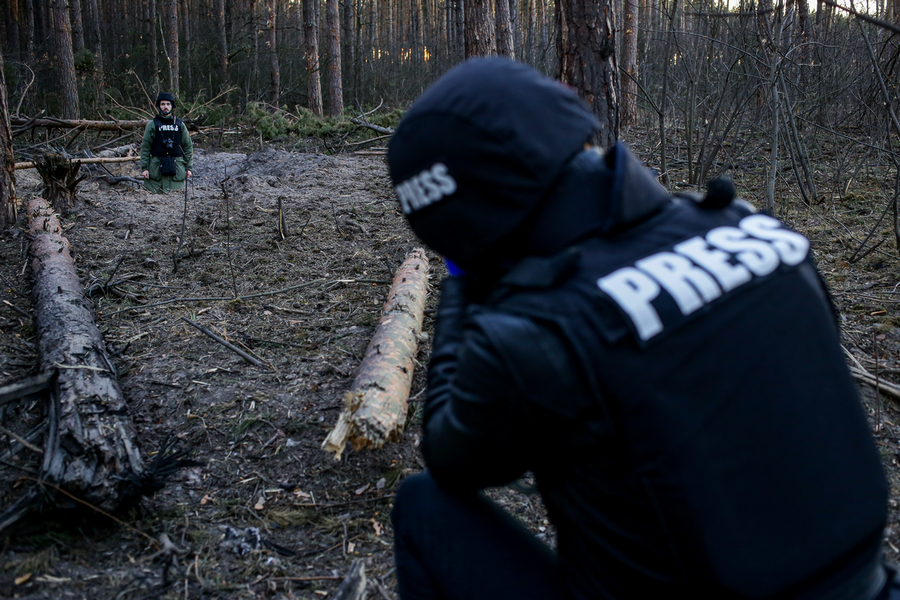
After analyzing the nature of the attacks, experts confirm that during the Russian-Ukrainian war, people and vehicles with the marking PRESS became targeted targets for shelling. In addition, Russian missiles and bombs are hitting newsrooms, telecommunications, radio, and television infrastructure and equipment. Several objects of this type were repeatedly bombed.
Ukrainian journalists are under unprecedented pressure from the occupiers in the temporarily occupied territories. At least 14 media workers were kidnapped and subjected to physical and psychological pressure to force them to cooperate with the occupying Russian authorities. Even when a journalist manages to leave the occupied territory, their relatives often fall victim to blackmail tactics. For example, the 75-year-old father of RIA Melitopol’s editor-in-chief Svitlana Zalizetska was kidnapped and released from hostage only after the journalist gave access to her media resources, and all equipment was stolen from the publication’s office.
The occupiers seized the Ukrainian mass media’s offices, property, transmitters, printing, and computer equipment in the occupied territories to use long-known brands for Russian propaganda. The Russians quickly created fake versions of respected local media with the help of local collaborators and engaged Russian propagandists. The occupiers stole and destroyed all media equipment and property during the retreat.
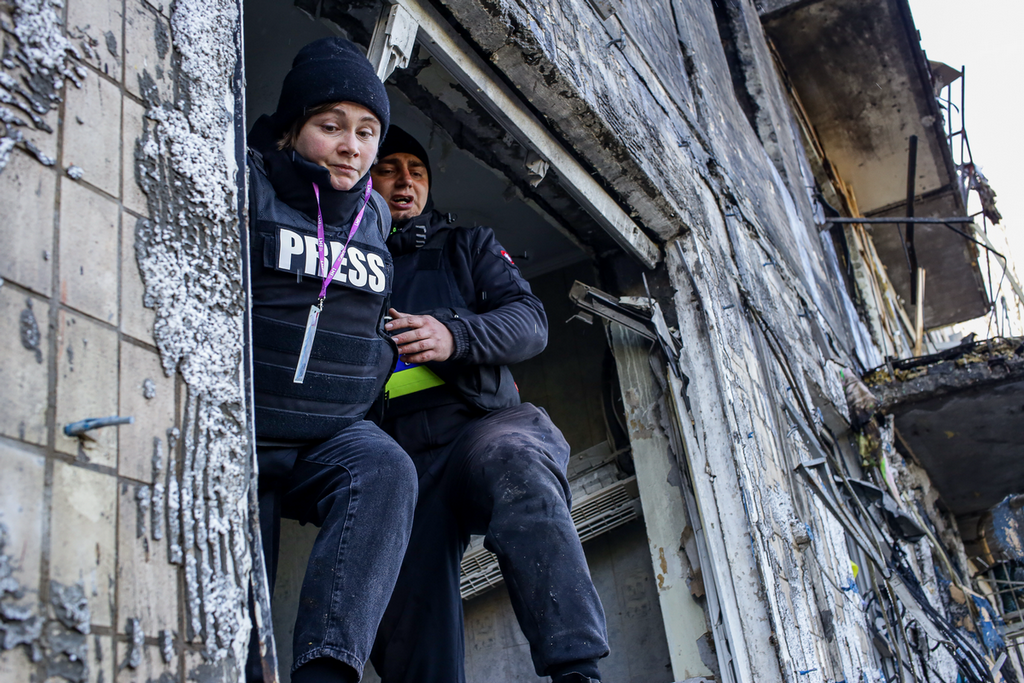
As a result of massive artillery shelling, many journalists lost their homes and property. They were forced to relocate and seek refuge in other parts of Ukraine or abroad.
In 2022, at least 43 cyber and DDoS attacks on Ukrainian media were synchronized with the military actions of the Russian occupiers, making them the likely initiators of such attacks.
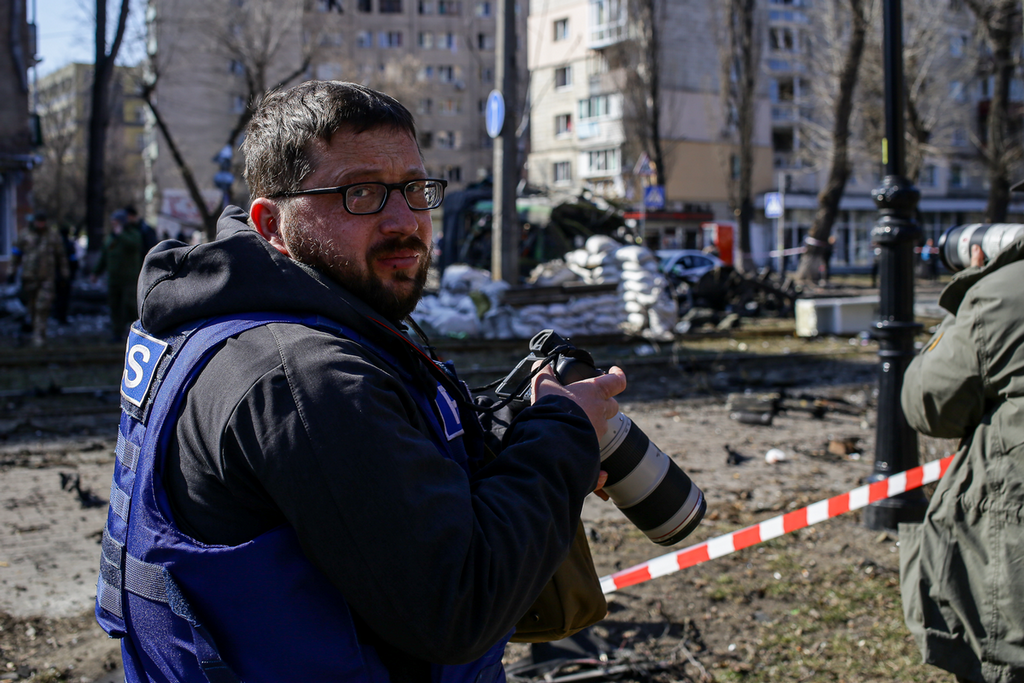
Full text of the report in English is available on the Fund’s website.
Reference information: The Justice for Journalists Foundation is registered in London. It allocates funds for journalistic investigations of severe crimes against mass media workers and helps journalists and bloggers assess and minimize their professional risks. The Foundation’s mission is to make it easier for journalists to access existing resources and adapt them to the specifics of a particular region.
Since 2020, the NUJU has partnered with the Foundation (London) in monitoring attacks against media workers in Ukraine Media Risk Map.
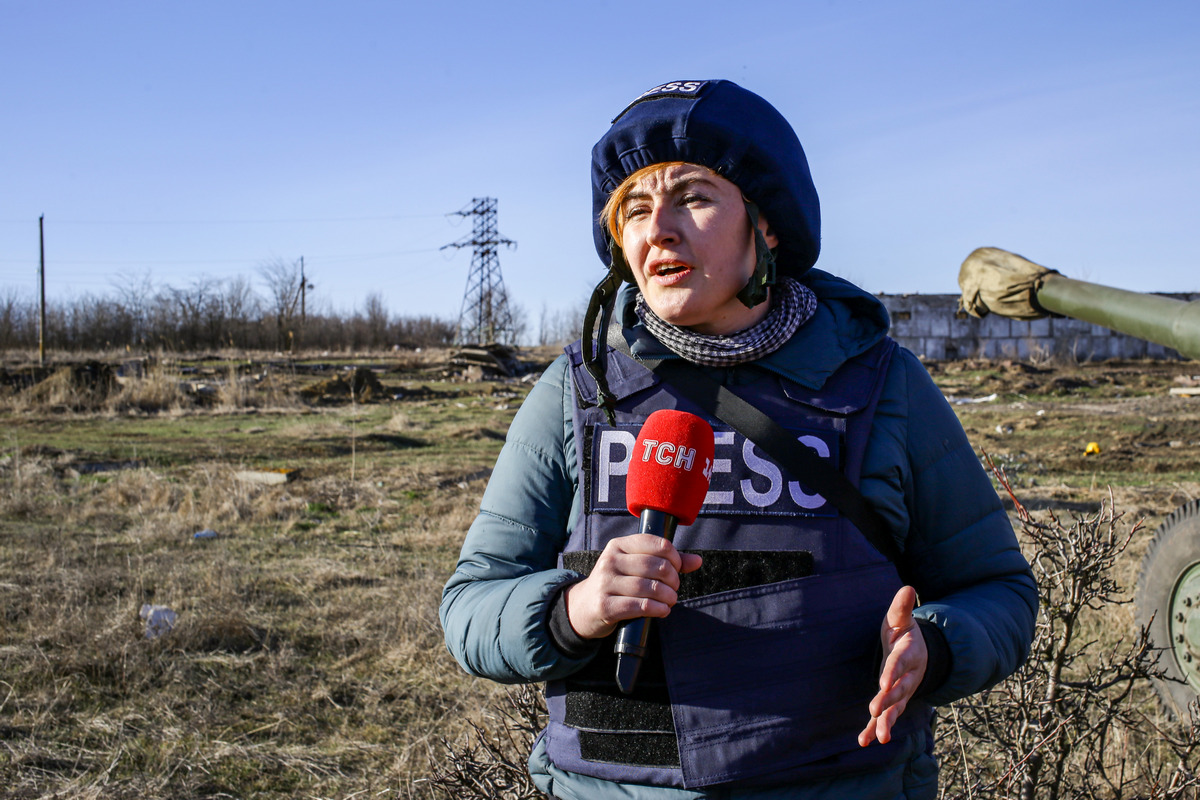
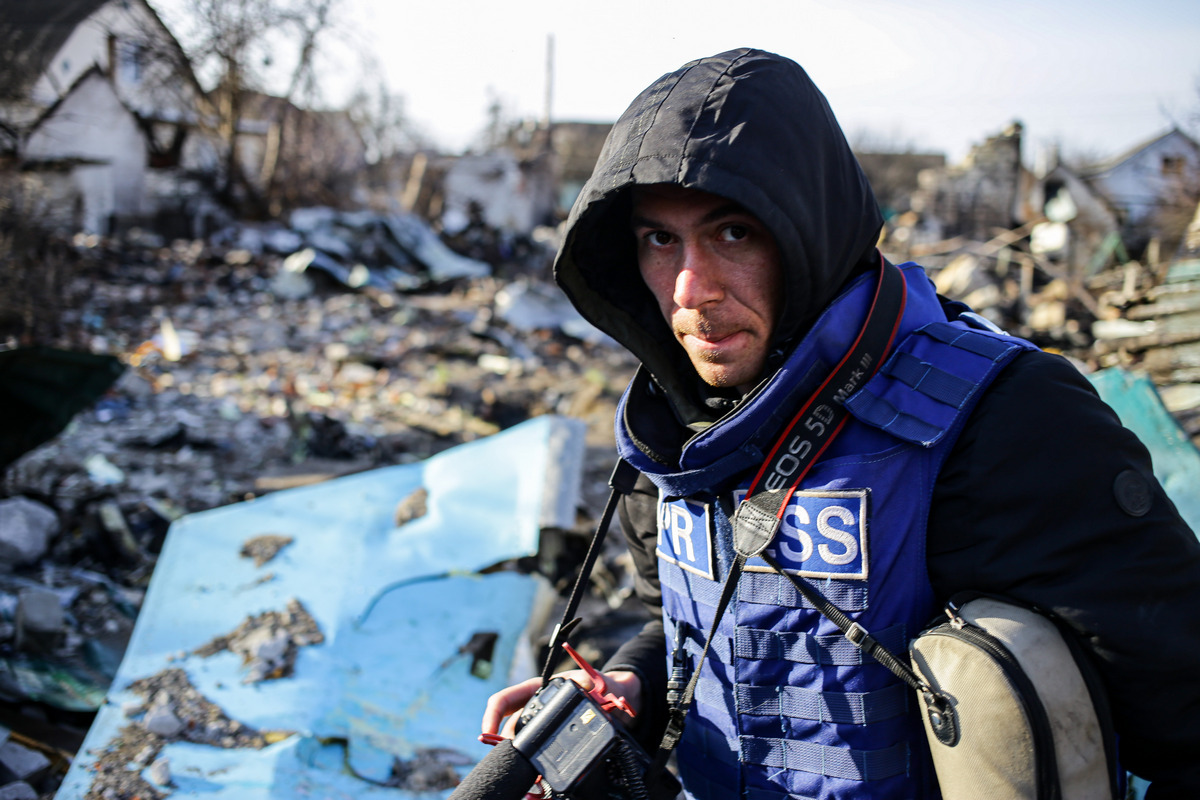
NUJU information service
Photo: Stas Yurchenko / Graty

 THE NATIONAL UNION OF
JOURNALISTS OF UKRAINE
THE NATIONAL UNION OF
JOURNALISTS OF UKRAINE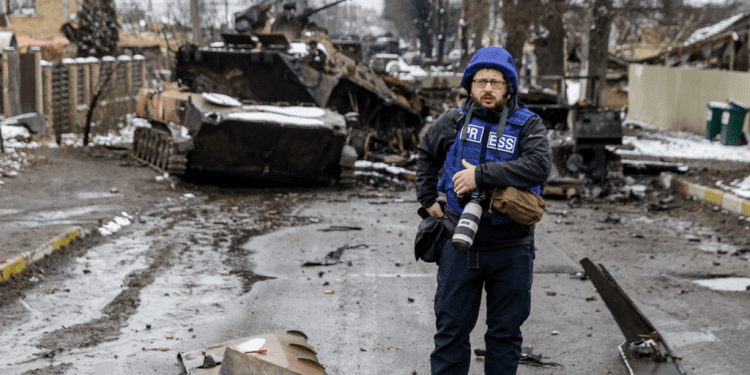
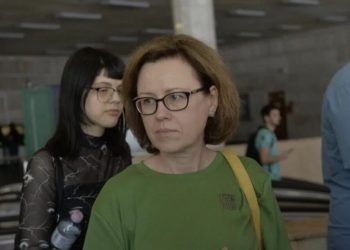
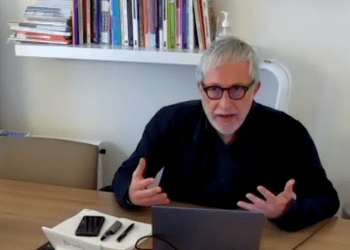
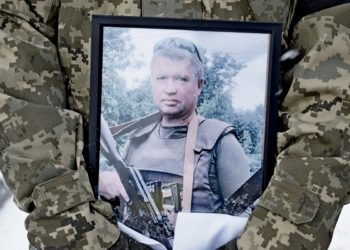













Discussion about this post